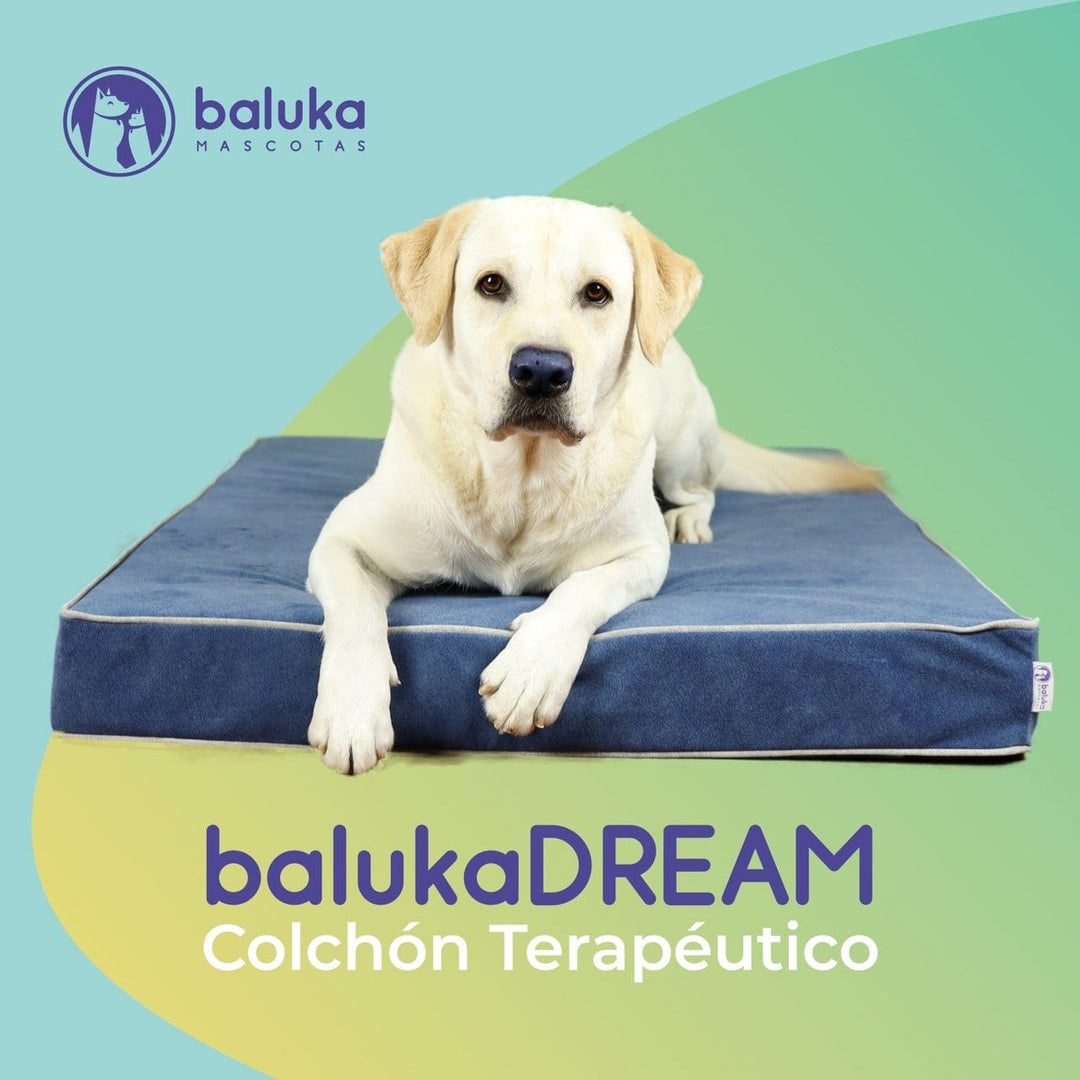Do you know why dogs dream and have nightmares? The brain waves of our canine friends are very similar to human ones, so it is very common for dogs to dream while they sleep, as we do. Let's analyze nightmares in dogs, why a dog may have nightmares and what we can do to help him rest better.
Do dogs have nightmares?
Indeed, dogs do dream, and science has confirmed that dogs can dream in their sleep, just like us.
A study published in the journal Neuron in 2001, undertaken by two researchers from the prestigious MIT (Massachusetts Institute of Technology) and based on the studies of Stanley Cohen, an expert in canine behavior, concluded that dogs have a brain activity analogous to ours.
The analysis of a large number of encephalograms performed on sleeping dogs revealed that dogs' sleep is divided into two main phases:
- Slow phase. This phase corresponds to our light sleep (sleepwalking). In this phase, brain waves relax, but muscle tone is maintained, so that any external stimulus can awaken the dog.
- Deep phase. In this stage the opposite happens, the brain waves reach peaks of activity and the musculature relaxes. It is in this phase that dreams occur (and, therefore, also nightmares).
It is not easy to test whether a dog is having nightmares, but it is quite feasible to assume that he will dream during his deep phase. When dogs are dreaming, they often twitch their paws, ears and eyelids (they may even half-open their eyes), show signs of agitation and even emit sounds similar to cries and whimpers.
These signs do not necessarily mean that the dog is having a nightmare. Agitation and movement of the paws may appear in any dream in which the dog is performing a physical activity, even a fun one, such as playing with us or running towards a ball.
However, since we know our pet, we must apply a certain amount of intuition: we can never know for sure if what our dog is dreaming about is something bad, but it is possible that excessive agitation or too much whining may suggest otherwise.
Our Viscoelastic Mattress for Dogs
Has his name embroidered on it
Cares for his bones
Best for dogs with dysplasia or osteoarthritis
Why does my dog have a lot of nightmares?
When a dog is a restless sleeper, it is usually for reasons similar to ours. It is possible that our best friend is subjected to some frustrating situation, or that is destabilizing him.
Some examples of these situations are separation anxiety, the loss of a favorite toy, having had problems with other dogs or with a member of the household, or having been frightened by the explosion of firecrackers or fireworks.
In addition, a newly adopted dog will tend to have restless dreams, evoking memories of his previous life. Dogs that have suffered animal abuse will be more prone to relive those unpleasant moments in the form of nightmares; it is also possible that the reason for the nightmare does not necessarily come from the memory of abuse, but from a trauma suffered in an accident (with us or with their former owners).
Another classic (and one of the most common) reason for a poor rest is usually the bed. If the dog does not sleep in an appropriate place, it is very possible that the sleep is not restful and, consequently, agitated dreams and nightmares proliferate.
How to help my dog if he has nightmares
Do not interrupt his sleep
Waking your dog while he is having a dream or nightmare is not a good idea. For a few seconds he will remain confused and frightened, trying to distinguish between the real world and the universe drawn in his dreams. He may even react erratically until he manages to pull himself together and become aware of where he is.
We recommend that you do not intervene, because it may pass in a few seconds. If this is not the case, stroke him gently and address him in a very soft and affectionate tone. If he eventually wakes up, keep talking to him and caressing him, because your mere presence will always comfort him.
Give him a comfortable mattress to sleep on
The resting place is as important for us as it is for our best friends. We strongly recommend that you invest in a good mattress for dogs like the ones you will find in Baluka, where your pet can adopt a comfortable sleeping position, and give him freedom of movement during sleep.
It is also essential that the materials of these mattresses are resistant, both to possible snags with your dog's nails, as well as mites and bacteria: rest and hygiene should not be at odds!
Our best friends also share with us the same type of brain activity and, therefore, the same sleep patterns. If you think your dog may be having nightmares, don't hesitate to facilitate his rest with lots of love and a comfortable mattress appropriate to his size.
















